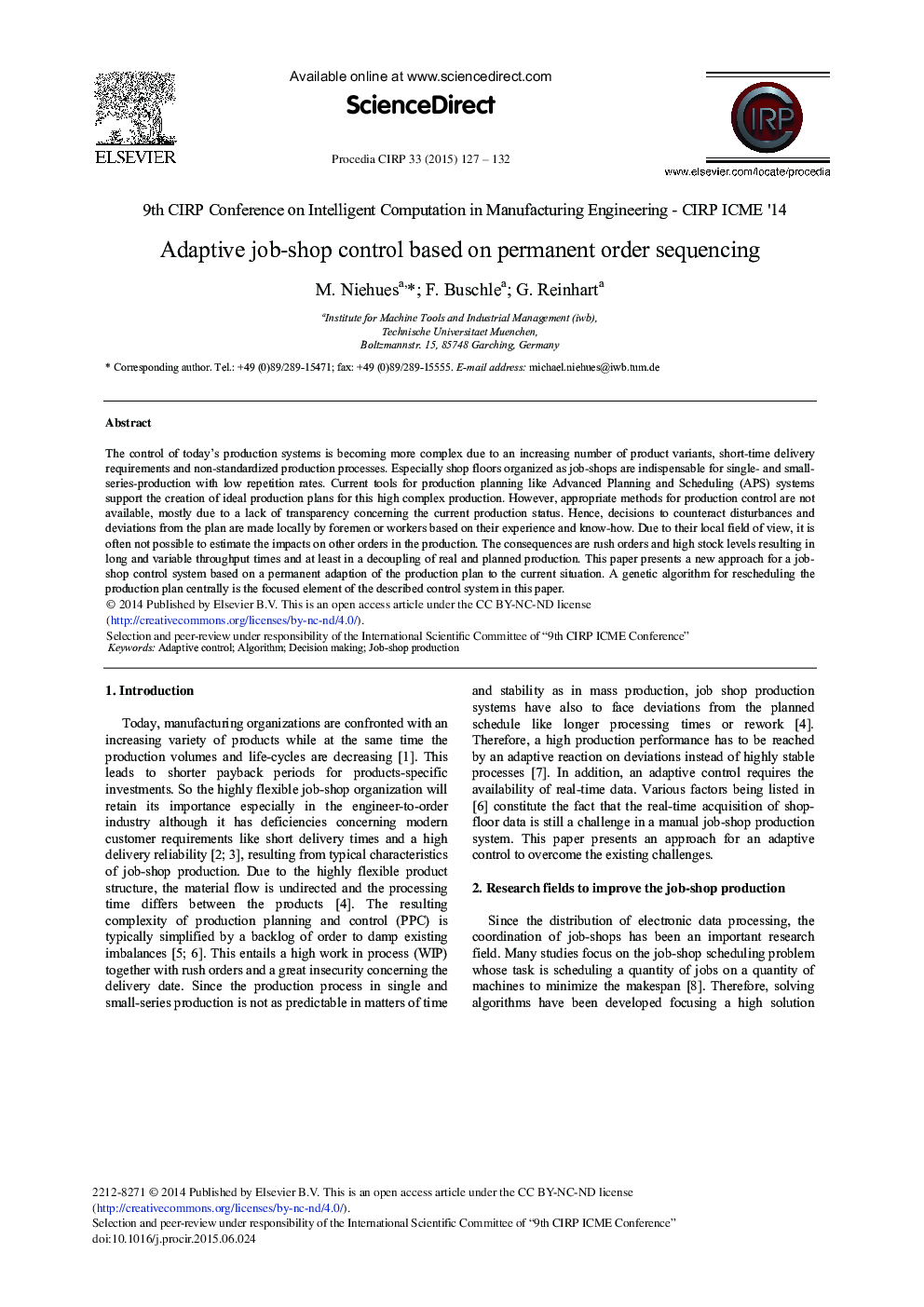| Article ID | Journal | Published Year | Pages | File Type |
|---|---|---|---|---|
| 1699303 | Procedia CIRP | 2015 | 6 Pages |
The control of today's production systems is becoming more complex due to an increasing number of product variants, short-time delivery requirements and non-standardized production processes. Especially shop floors organized as job-shops are indispensable for single- and small-series-production with low repetition rates. Current tools for production planning like Advanced Planning and Scheduling (APS) systems support the creation of ideal production plans for this high complex production. However, appropriate methods for production control are not available, mostly due to a lack of transparency concerning the current production status. Hence, decisions to counteract disturbances and deviations from the plan are made locally by foremen or workers based on their experience and know-how. Due to their local field of view, it is often not possible to estimate the impacts on other orders in the production. The consequences are rush orders and high stock levels resulting in long and variable throughput times and at least in a decoupling of real and planned production. This paper presents a new approach for a job-shop control system based on a permanent adaption of the production plan to the current situation. A genetic algorithm for rescheduling the production plan centrally is the focused element of the described control system in this paper.
